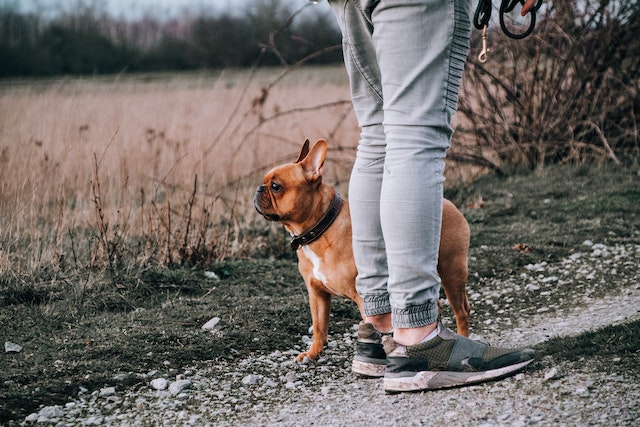- Dog Beaches
arrow_drop_down
- Dog Parks
arrow_drop_down
- Dog Camping Spots
arrow_drop_down
- Pet Sitting
arrow_drop_down
- Dog & Training Information
arrow_drop_down
- Dog Training
arrow_drop_down
- Dog Breeds
arrow_drop_down
- Dog Training
A Step-By-Step Guide to Effectively Training a Puppy
- Puppy
- Training
-
Mar 12
- Share post

Training a puppy can be a challenge but with the right guidance, it’s easy to raise a pup who’s obedient and loyal. This comprehensive guide will help you create an effective structure, reward system, and plan to ensure your puppy becomes well-behaved and an amazing addition to your family.
Establish a Routine.
Establishing a routine is key to successful puppy training. Puppies thrive on structure and predictability, so it’s important to establish a set of rules that you are consistently reinforcing. This includes things like housetraining, crate training, and meal times. By providing consistency for your pup, you’ll be able to begin reinforcing positive behaviors and discouraging negative ones.
Implement Positive Reinforcement Techniques.
Effective puppy training should focus more on positive reinforcement rather than punishment. Remember that all puppies learn in different ways, so different techniques may work better for some pups than others. Give treats and verbal praise when the pup obeys a command you’ve given him, such as ‘sit’ or ‘stay’. You can also give physical affection and attention to your pup when he follows commands or engages in desirable behaviors.
Set Clear Boundaries and Consistency in Rules
Before you begin training your puppy, it’s important to set clear boundaries and be consistent when enforcing rules. This might include controlling which rooms the pup has access to, where they sleep in the house, and laying out limits on furniture or beds they’re allowed to jump onto. Establishing these clear cut boundaries makes life easier when puppies enter into their adolescent and adult stages with far less backsliding in terms of behavioral issues.
Socialize Your Puppy with Other Animals and Humans.
Once all the boundaries and expectations have been set up, it’s important to socialize your puppy with other animals and people as soon as possible. Exposure to different types of people, dogs, cats and other animals is key to getting your pup used to being around others so they don’t become overly shy or afraid. Taking regular trips to the park for puppy play dates with other dogs, visits to pet stores, or inviting family and friends over for a visit are all great ways you can socialize your new pup.
Provide Regular Exercise to Keep Your Dog Fit and Disciplined.
Exercise is essential to keeping your puppy healthy and in good spirits. Regular walks, fetch, and scheduled play sessions will not only help tire them out but they’ll also help to strengthen the bond between you. Exercise also helps to burn off extra energy that can result in problematic behaviors such as chewing and barking. On top of exercise, make sure to keep up with basic obedience commands like sit, stay, come, etc. This further reinforces good behaviors and keeps your pup obedient.
Want to bring your dog to a café? Let them enjoy some tasty treats and drinks too?…
After moving to Brisbane, we’ve spent a lot of time exploring the area with the…
When choosing a pet that fits your lifestyle, cost and ease of care are important…
In Australia, many people own dogs or cats, but finding a hotel that allows pets can…
Last week, we took our dog to the beach, and after playing, he was covered in sand. We…
For pet owners, their own dogs are undoubtedly the best source of joy, capable of…
